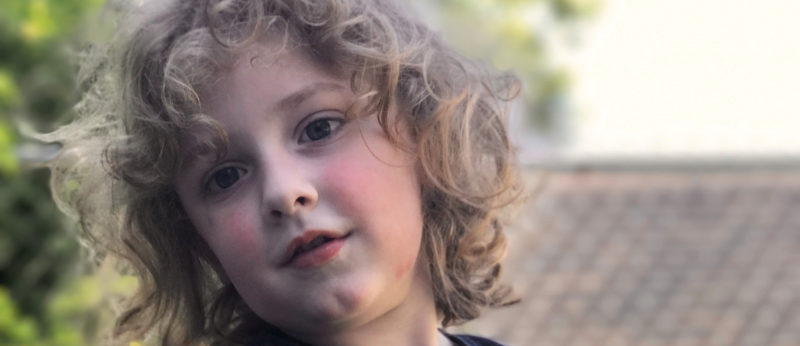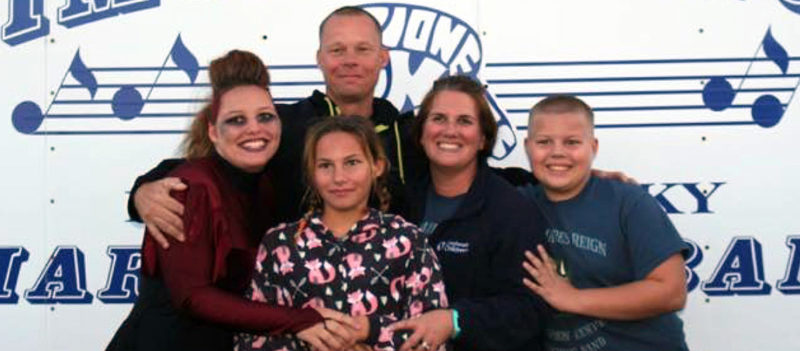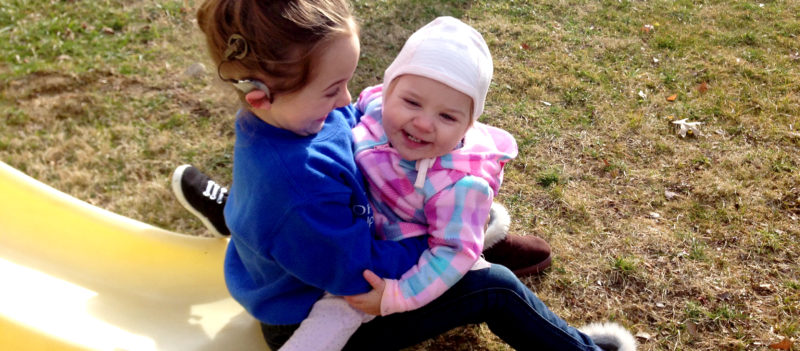When you see your child beginning to struggle to get words out, it can be concerning. This is especially true if your child, who previously had no difficulty speaking, has now suddenly begun stuttering for unknown reasons. Fortunately, approximately 75% of those children who show signs of this type of speech behavior will eventually recover. However, that does not minimize the level of concern that families experience once the behavior begins to emerge.
As a parent, how do you know when to accept stuttering as a normal part of development and when to be more concerned? The answer is not always a simple one.
When children are learning how to communicate, many will experience some forms of speech breaks during their development. Most of these episodes are often overlooked and considered a typical developmental pattern. In those cases, the speech does not sound struggled or forced, there is typically no awareness on the child’s part, and the flow of talking does not appear to be seriously impeded.
Stuttering is quite different, however, and typically occurs at about the same time. The speech characteristics are not similar, although the child may still not demonstrate any level of conscious awareness. All of these behaviors usually occur when children are acquiring the complex skills involved with learning to talk. It is also at about the same time when other complex, ever-expanding developmental skill sets (walking, potty-training) are emerging.
The culmination of all these new skills at one time are thought to place just enough stress on the child’s overall developmental system to trigger some form of breakdown. That breakdown appears to impact speech production the most, inasmuch as so many different systems must interact together in order to account for all the necessary components underlying the way in which speech is produced.
In most cases, differentiating between what is considered stutter-like versus non-stutter-like is often accurately made by parents themselves. Parents are often very accurate when identifying those behaviors that do not seem typical. Below is a list of the behaviors that are considered stutter-like compared to those that are not.
Examples of non-stutter-like behavior:
- Hesitations between words (“I want some …. milk”)
- Interjections, such as “um,” “uh,” “well, or “like”
- Revisions within utterances (“The dog is – the dogs are playing”)
- Repetitions of phrases (“I want to … I want to go”)
Examples of stutter-like behavior:
- Repetitions of words usually more than one time (“I I I … I want a banana”)
- Repetitions of sounds (“M-my”) or syllables (“Ba-baby”)
- Sound prolongations (“I— (prolonging sound) I live in C—-Cincinnati.”)
- Vocal blocks in which no sound comes out (“M {block} my name is {block} … M Max.”)
Emotional Reactions to Stuttering
In addition to taking note of how stutter-like disfluencies sound, it is also very important to be aware of any emotional reactions that your child may demonstrate in response to his or her stuttering. The following reactions may be a cause for concern:
- Awareness of difficulty with speaking (saying, “I can’t say it.”)
- Frustration from stuttering
- Shame or embarrassment with talking
- Refusal to talk to strangers due to a fear of stuttering
- Escape or avoidance behaviors (e.g. abnormal movements during speech such as jerking or forceful eye blinking, head nodding, or using of many filler words, such as “um”)
When Stuttering Persists
The majority of children do tend to recover from stuttering. Determining the difference between a child who is stuttering and a child who is simply passing through a developmental stage can be confusing. Here are some factors, which may indicate that your child is at greater risk:
- Family history of stuttering
- Age at onset (if your child began stuttering after age 3 ½ years)
- Time since onset (if you child has stuttered for longer than 1 year)
- Gender (males are 3 to 4 times more likely than females to persist in stuttering)
- Speech is difficult to understand with many speech sound errors
- High frequency of disfluencies (more than 10 stutters per 100 words)
- Higher percentage of stuttering-like disfluencies (stutters comprise more than 50% of total disfluencies); these include:
- Repetitions of sounds, syllables, and one syllable words
- Tense pauses accompanied by muscular tension in the jaw and/or mouth
- Prolongations (elongating a sound or syllable)
- Silent blocks (voice stops)
- Higher number of times a word or sound is repeated — often more than two times
- Increased degree of tension during speech
- Higher sensitivity to stress
Variability in Stuttering
It is important to note that stuttering is highly variable in its nature and frequency among children and even within the same child. A common saying is, “The only constant with stuttering is its variability.” While there is actually some overlap between a young child who is stuttering and one that is passing through the developmental disfluency period, there are clearly very discernible differences. However, one area of similarity is the impact of environmental influences on fluency.
All children will generally have more difficulty speaking smoothly under certain conditions: when interrupted or interrupting; commanding or directing another person; responding to a request to change their own activity; telling a story or providing a narrative; or when excited or tired.
Also, children often exhibit more disfluency during vacations, holidays, and visits from relatives. Similarly, disfluency increases when the child is exposed to psychological stress such as a birth of a sibling, moving homes, divorce, or other events that disrupt the normal life routine. Stress due to the COVID-19 pandemic could bring about an increase in disfluency.
When to Seek Help
Your child should be evaluated by a speech-language pathologist who specializes in stuttering if:
- You have a concern about your child’s speech
- You notice tension, facial grimaces, or struggle behaviors during talking
- Your child avoids situations in which he or she will have to talk
- Your child expresses concerns about speech
- Your child avoids saying certain words or sounds
Getting Your Child Help
Diagnosing stuttering can be difficult as stuttering is a complex disorder and no one child stutters in the same way. For children that do continue to stutter, early treatment can substantially reduce and sometimes eliminate their stuttering.
Speech therapy is the most effective treatment, and there are different kinds available, depending on each child and family. In addition to working on a child’s speech skills, therapy can also help build the child’s confidence in communicating. Families and patients are counseled and given support throughout the therapy process.
To learn more about our division of Speech-Language Pathology, call 513-636-2371 or email speech.pathology@cchmc.org.






Hey Katrina, hope to find you well. Can I briefly ask if you understand the concept of Atypical dysfluencies vs atypical fluencies.
Thank you.
Sbongile Mokwena, South africa